August, 2020
The Covid-19 pandemic- from your domestic help’s perspective
5 minutes read
Seema is a 32 year old domestic worker based in Dadar, Mumbai (Click here to know HER story). The following are glimpses into her life during the 2020 Covid-19 pandemic and the ensuing nationwide lockdown.
One evening, sometime during the first week of February 2020, Seema and her family were watching the news on their recently purchased television.
“चीन के बाद भारत में दी कोरोना वायरस ने दस्तक, मिला पहला पॉजिटिव केसI”, said the news headline. At first, they felt fear, followed by confusion. They were unaware of what it meant for them. Soon after, Seema shut it off and ordered the kids to go to bed. There are more important things to worry about, she thought, as she sat down to stitch saree falls. I need to complete three of these by tomorrow.
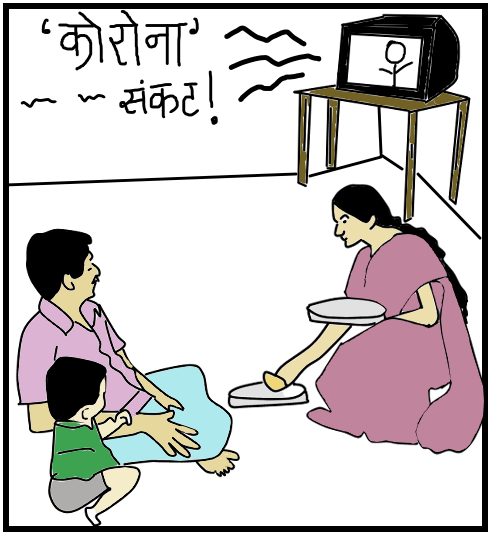
More than a month passed. Life remained more or less the same for Seema, except for some minor changes. She had to sanitize her hands before and after working at each house. She continued working at all her usual workplaces, including cooking for families.
On March 10th, however, while she was working at the Pillai’s, Mrs. Pillai informed her about the first Covid case in Maharashtra and expressed her concern for her elderly husband’s health. Mr. Pillai has diabetes. Although Seema had been anticipating this, the reality of the situation suddenly struck her. I might have to stop working altogether. Seeing the consternation on her face, Mrs. Pillai promptly assured her that she would be getting her monthly wages no matter what. Seema was beyond relieved.
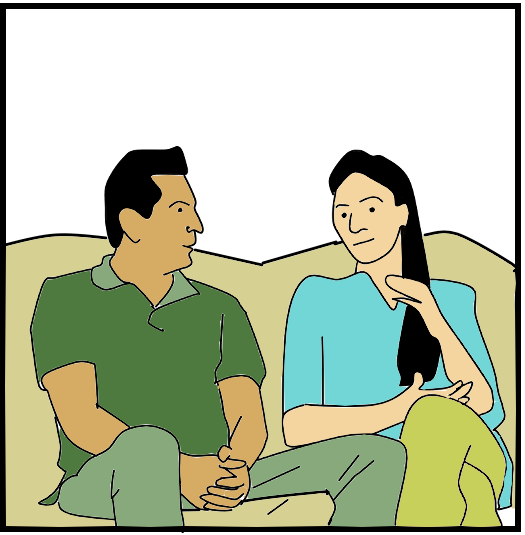
Her other employers stated similar concerns. However, they did not display similar compassion. Before long, as the world rapidly started descending into chaos, so did Seema’s livelihood. By mid-March, all schools were closed so the children were now at home all day with their father Rakesh, who was unable to find a job for himself. By now, the only household Seema was allowed to work at was the Mehra’s, her latest employers.
On one hand, Seema was thankful for this source of income (the rest of her employers, except the Pillais, hadn’t paid her so far), on the other hand, she was anxious about her family’s health. She wore her dupatta/pallu across her face because she couldn’t afford masks.
About a week later, a nationwide lockdown was declared. The absence of public transport made things much worse for her. She had to walk to work, instead of taking the rickshaw like usual, which took her 30 minutes. Nonetheless, this did not last for long. One day, as she was walking towards her workplace, she was stopped at the main gate of the locality. The watchmen told her that the Residents’ Welfare Association (RWA) had decided to restrict maids from entering the neighborhood after one of them tested positive a few days prior.
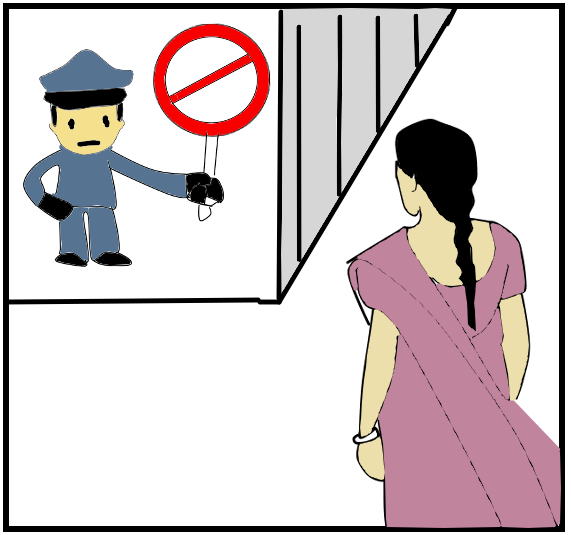
For a week, Seema and Rakesh debated if they should temporarily return to Ranchi, their hometown, but eventually decided against it. A two-week-long journey on foot with three young children was impossible.
Seema’s current income is only a quarter of what she used to earn. She barely has any clients for tailor work. She has finally resorted to using money from her savings. The bank has waived off the interest on her husband’s debts, which is a huge relief. However, they haven’t received any form of aid from the government. They haven’t been able to pay for their rent for the last 2 months. The NGO Seema has been connected with helps them by providing basic ration every month. They have been trying to get all domestic workers to get registered and obtain workers’ IDs so that they become eligible for government support but it’s a tedious process.
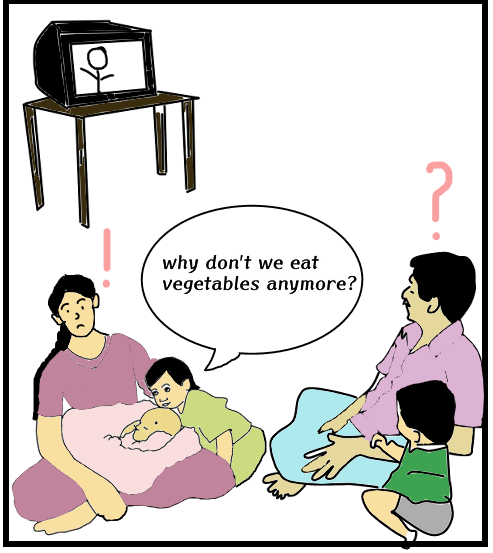
Rakesh has grown increasingly irritable since the lockdown. He hasn’t been able to go out of the house or get his hands on alcohol. He and Seema fight almost on a daily basis. He regularly assaults her after the children are asleep.
Sometimes, when Seema thinks of reaching out for help, she abstains at the thought of the children. The children need him. What if they start hating me for making their father go away?
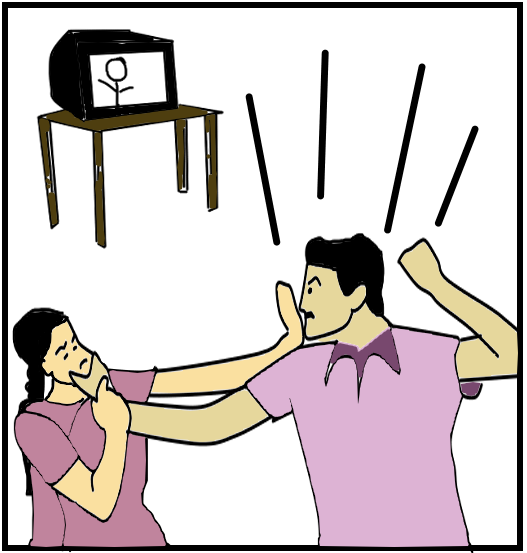
It’s been 4 months since the lockdown. The situation has improved a little. Seema and her family have been able to access more government services. Resources are still meager, however. Seema occasionally visits her employers (those who are willing to pay her) to collect her wages. She has been trying to convince the others to call her back to work but no one seems ready to do so yet. Seema is aware of the possibility of permanently losing her jobs someday. She has been getting more customers for her tailoring work now, but not enough to keep her afloat.
The future has never seemed so full of uncertainty. Seema tries her best to be hopeful, for the sake of her children, but the bleakness of it is hard to look past.
References
- Remote interviews conducted by the team at Women’s Identity and Progress
- Wikipedia: COVID-19 pandemic in Maharashtra
- ILO: COVID-19: Protecting workers in the workplace

Leave A Comment